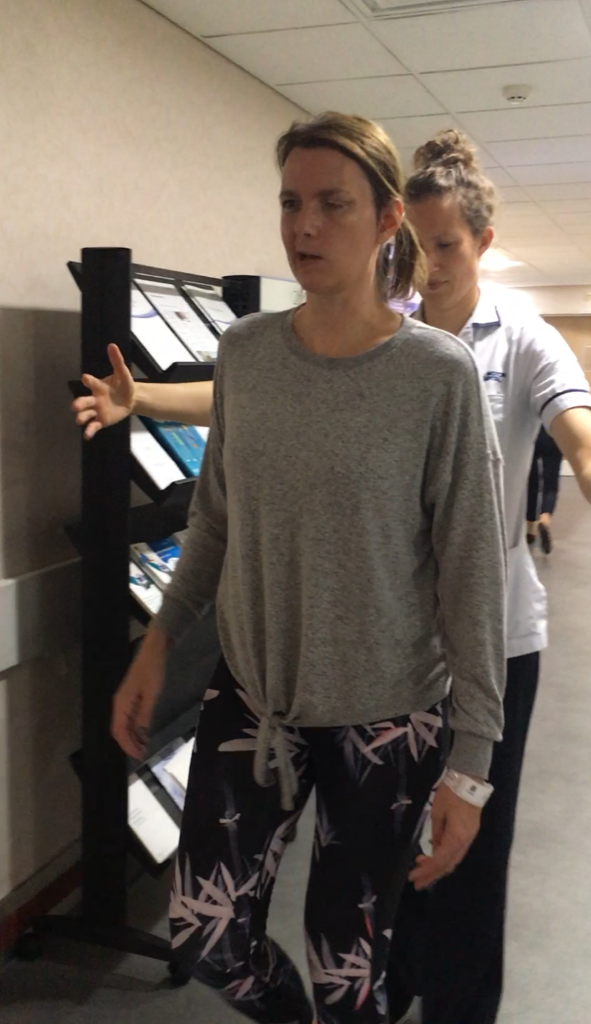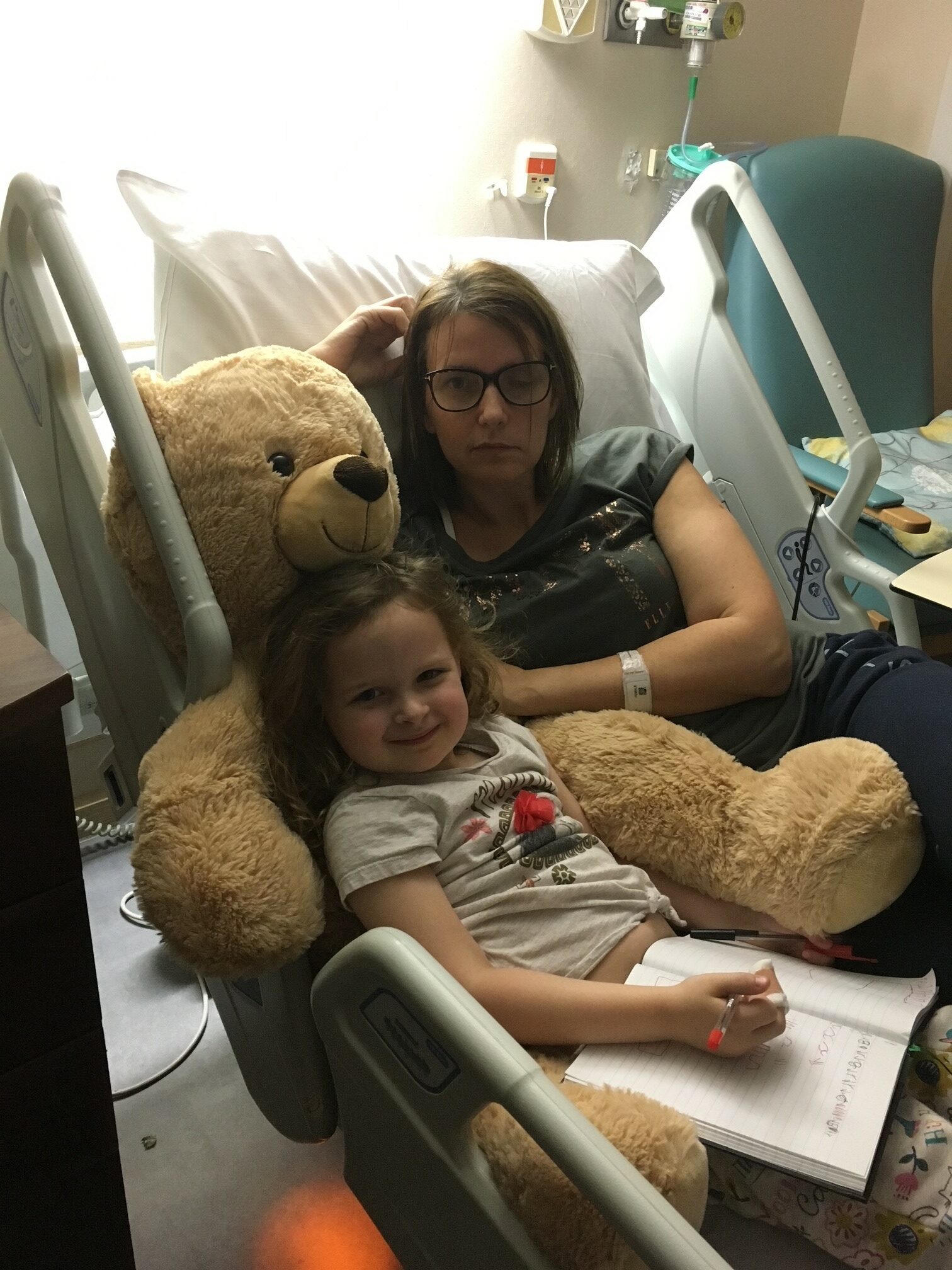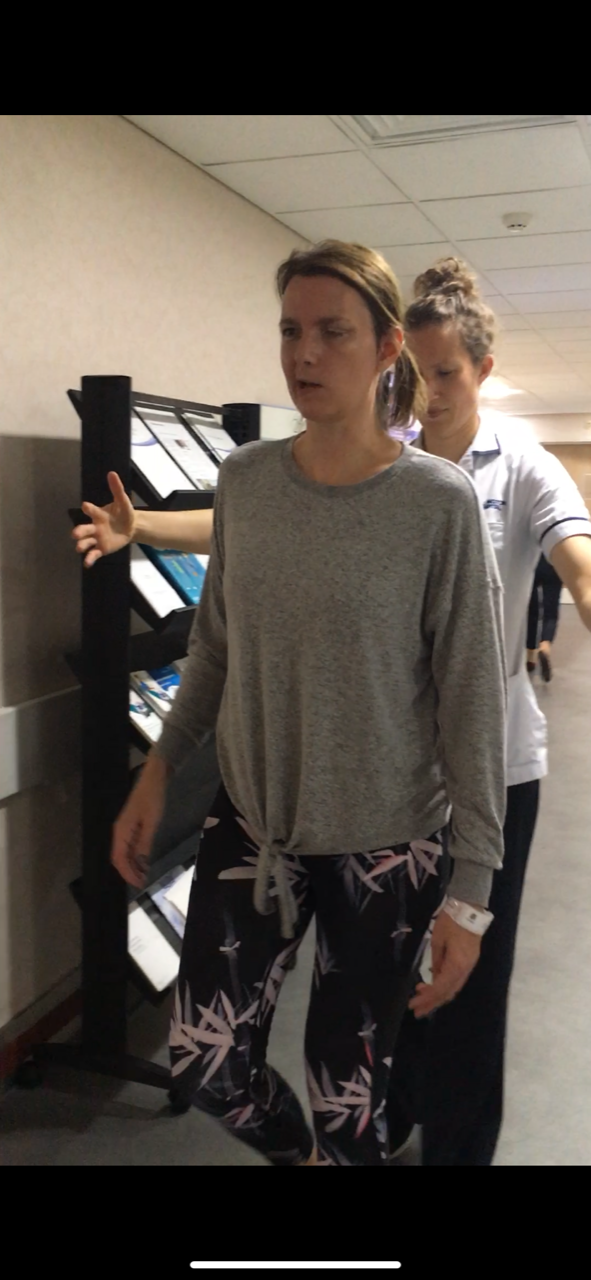
“I have learned that neuro rehabilitation is a commitment; it requires courage, belief, determination, and hard work from the person affected, both within therapy sessions and in the time in-between.”
Anya Jones
Anya Jones, 51, from Kent, is one of our Involvement Champions and recently played a part in developing our new Strategy. She was diagnosed with an acoustic neuroma in 2017.
Acoustic neuromas grow along the acoustic nerve, which controls hearing and balance. They can also affect the facial nerve, which controls facial function and movement.
Anya’s surgery to remove the tumour was a success, but unexpected swelling of her brain caused her to suffer many unusual complications. Anya, who works in consultancy, required over 18 months of rehabilitation and recovery, including speech and language therapy, to help regain swallow function and vocal strength; and neuro physiotherapy, to improve her balance and mobility. This is her story of how she coped.
Diagnosis

When Anya received her brain tumour diagnosis, she was in shock. Brain surgery was a huge hurdle to overcome. But nothing could have prepared her for the rehabilitation challenge that followed.
“My life came to a standstill on the day the news of my tumour was delivered, but it shattered into pieces the day I had my tumour treated. Months of rebuilding a life from those pieces followed, having to reassess everything I had built over the 45 years beforehand and choose which pieces were important to recover and which I could let go of.”
Anya’s daughter Lyla was only 4 when she was diagnosed, and she was the key reason that Anya found the strength to spend day upon day in rehab.
“I needed to retrain my brain to recover my balance so I could be safe to look after her unsupervised, learn to walk again to be able to take her to school, work towards speaking clearly to be able to read her bedtime stories, and undertake physiotherapy day after day to retrain my face to work properly so I could smile at her again. I was undeniably driven by the hope that I could regain a life of my own, but stronger still was the desire to be able to be the mother I wanted to be for my daughter again.”
Anya
Rehabilitation
Anya’s rehabilitation was multi-focused. The different therapies she underwent included:
Speech and language therapy – to improve swallow function and vocal strength
Neuro physiotherapy – to regain balance and mobility. Anya had to relearn how to sit up straight, then to walk with support. She was able to walk unsupported after 18 months, which allowed her to return to her job in London.
Occupational Therapy – to regain full usage of her upper limbs and improve a left-sided weakness and co-ordination challenges
Specialist vestibular therapy – helped retrain her brain to manage balance issues
Facial Physiotherapy – to improve on facial function after facial paralysis
Neuropsychology – an ongoing part of her rehabilitation. From assessing her cognitive function and ability to navigate her environment after surgery, to challenging executive function, memory, and processing capabilities when she returned to work 2.5 years later.

Rehabilitation’s challenges are not just physical, but mental, too

“My recovery would not have been achievable without the expertise and guidance of a team of health professionals, and I am deeply grateful for all their support.
“I have worked hard to not only rebuild my life but to accept the changes in me. Over the course of two and a half years I managed to adjust my focus away from just being about the next rehab therapy to making a successful return to work. It was incredible to finally feel that I had rebuilt an independent life but there have been consequences. I felt an overwhelming grief from knowing I was not the same anymore, a sense of shame in being different and thought I was lesser than I once was. But when I focused on what I had achieved, how far I had come since surgery, I instead felt proud for being strong and all my imperfections became a part of that. Anyone who is unfortunate enough to experience a brain tumour of any kind is inevitably changed by it – the emotional and mental challenges are just as important as the physical ones.
“In sharing my experience, I hope I will help raise awareness of the potential that rehabilitation has and provide some inspiration and motivation to others. I saw a quote on the London Underground in the week before my brain surgery that resonated strongly with me – “A champion is simply someone who didn’t give up when they wanted to” (Tom Landry, Dallas Cowboys Coach). I’ve read that quote many times during rehab, because there were so many days I did want to give up. Looking back now, over five years later, I can acknowledge that I didn’t give up and I’m still moving forwards despite the challenges that I navigate and manage each day, and I am proud of that.
“5 years on I am now fully independent, I work full time again and have a good level of mobility. I even managed to return to skiing, one the my biggest passions in life last year! I ensure I do regular strength and stability training each week to keep myself protected from the risk of falls as my balance won’t ever fully recover. There are only a few aspects of my life that I haven’t been able to return to. I feel immensely fortunate to have regained so much of what I love, and I have learned to let go of what no longer works for me.”
Anya’s advice for anyone starting on rehab after a brain tumour
“The best advice I can give anyone embarking on a rehabilitation journey is to have faith in incremental changes. It may take time and feel like change isn’t happening quickly enough, but the small steps you take every time you repeat your rehab exercises are all adding up to progress.
“And repetition, repetition, repetition – whatever type of therapy it is, keep doing the work. But pace yourself, be kind and accept there will be days you are tired as this is very challenging for your brain, or days you feel unmotivated – you wouldn’t be human if there weren’t.
“Connect with people or activities that help you refocus and feel positive – for me this ranged from feeling love and support, laughing with friends, learning about others stories with shared experience and finding inspiration – do whatever works for you.”
